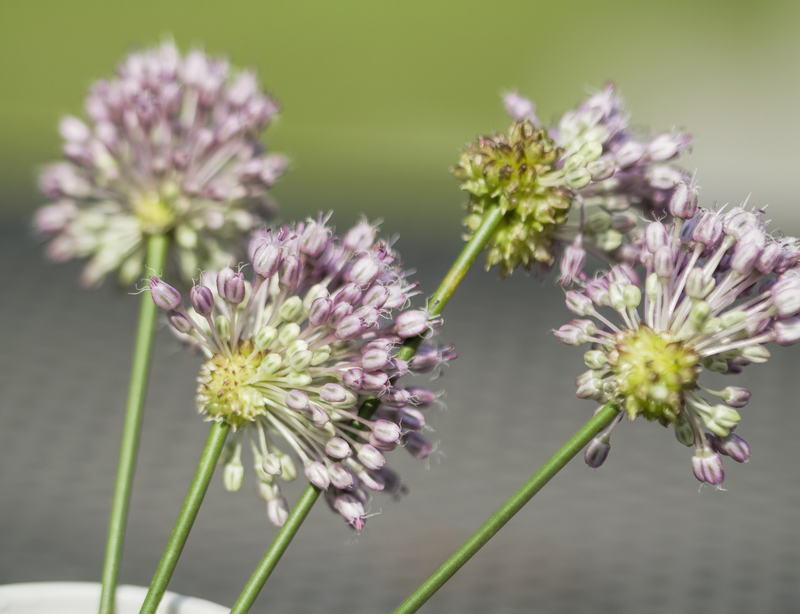Eco-Friendly Soil Enrichment from Organic Waste
Posted on 04/06/2025
Introduction to Eco-Friendly Soil Enrichment from Organic Waste
Eco-friendly soil enrichment utilizing organic waste is revolutionizing sustainable agriculture and gardening worldwide. As society becomes more aware of environmental concerns, turning food scraps, yard clippings, and other organic refuse into nutrient-rich amendments is gaining immense popularity. This blog dives deeply into organic waste soil enrichment, offering readers an engaging, comprehensive guide to greener and healthier soil management practices.

Why Enrich Soil with Organic Waste?
Conventionally, agricultural soils are replenished using chemical fertilizers. However, overreliance on these can degrade soil quality, pollute water sources, and disrupt ecosystems. Organic waste-based soil enrichment offers a sustainable solution by recycling waste materials into valuable nutrients that promote soil fertility and reduce environmental harm.
- Reduces landfill waste: Diverts organic matter from landfills and minimises methane emissions.
- Improves soil structure: Organic matter enhances soil porosity, water retention, and aeration.
- Fosters microbial life: Beneficial microbes thrive, improving nutrient cycling and plant health.
- Offers cost-effective nutrition: Organic inputs are often readily available and reduce dependency on synthetic products.
Types of Organic Waste for Soil Enrichment
Not all organic waste is equal, but many household, garden, and agricultural byproducts can be upcycled for eco-friendly soil improvement. Here are the most popular types:
- Kitchen scraps: Vegetable peelings, fruit waste, coffee grounds, eggshells, tea bags (avoid meats or oily foods).
- Yard trimmings: Grass clippings, leaves, small branches, and weeds (if not seeding).
- Animal manure: From herbivores like cows, horses, chickens (well-aged to kill pathogens).
- Paper and cardboard: Shredded, uncoated, and ink-free materials offer carbon for compost systems.
Through proper processing, these everyday wastes become powerful agents for nurturing healthy, productive soils.
Methods of Eco-Friendly Soil Enrichment Using Organic Waste
There are multiple techniques to transform organic refuse into soil-friendly amendments. The most effective methods include composting, vermicomposting, mulching, and the direct application of select materials.
1. Composting: Nature's Original Recycler
Composting is the cornerstone of sustainable soil enrichment. The process involves breaking down organic waste through microbial action to create humus--a dark, crumbly, and odor-free product.
- How it works: Microorganisms feed on kitchen and garden waste, gradually converting it into valuable nutrients.
- Benefits: Improves soil structure, increases water retention, supplies slow-release nutrients, and suppresses diseases.
- How to start: Establish a pile or bin, layer "browns" (carbon) like dried leaves with "greens" (nitrogen) like kitchen scraps, keep moist and aerate weekly.
Compost added to garden beds or farm fields can dramatically enhance plant growth while recycling household waste.
2. Vermicomposting: The Magic of Worms
Vermicomposting uses composting worms, usually Eisenia fetida (red wigglers), to process food scraps into worm castings--a superior soil amendment.
- Setup: Use a worm bin, bedding (like shredded newspaper), and keep the system moist and aerated.
- Advantages: Produces nutrient-dense, microbe-rich castings; ideal for container gardening and greenhouses; no foul odors when managed properly.
- Input type: Most vegetable scraps, coffee grounds, and crushed eggshells (avoid citrus or onions in excess).
3. Mulching with Organic Materials
Organic mulch--such as grass clippings, leaves, or shredded bark--is spread over soil to regulate temperature, conserve moisture, and slowly enrich the soil as it decomposes.
- How to apply: Layer organic mulch 2-4 inches thick around plants, not touching stems or trunks directly.
- Benefits: Suppresses weeds, reduces soil erosion, adds organic matter over time, and creates a healthier soil ecosystem.
4. Direct Incorporation of Organic Waste
Some organic wastes can be applied directly to soil, especially during off-seasons:
- Green manures: Growing cover crops (like clover or vetch) and tilling them into the soil adds nitrogen and organic material.
- Chop-and-drop: Pruning and leaving green matter on soil provides a natural mulch and slow-release fertilizer.
- Sheet composting: Spreading thin layers of kitchen scraps and covering with soil, allowing for in-situ decomposition.
Scientific Benefits of Eco-Friendly Soil Enrichment from Organic Waste
The power of eco-friendly organic waste recycling for soil lies in its multitude of positive ecological and agricultural effects.
- Enhances Soil Fertility: Rich compost and organic amendments add macronutrients (NPK) and micronutrients, fueling healthier plant growth.
- Boosts Soil Microbial Activity: Organic matter encourages earthworms, fungi, and bacteria that facilitate nutrient cycling.
- Increases Water-Holding Capacity: Soils enriched with organic waste retain more moisture, making gardens drought-resilient.
- Improves Soil Structure: Reduces compaction, promotes aeration, and roots can penetrate more deeply.
- Suppresses Plant Diseases: Healthy soil harbors beneficial microbes that outcompete or neutralize pathogens.
- Reduces Soil Erosion: Increased organic matter binds soil particles, leading to a more stable landscape.
Eco-Friendly Soil Enrichment Practices: Step-by-Step
Ready to begin your journey toward sustainable, eco-friendly soil improvement? Here's a comprehensive, practical guide:
- Separate Organic Waste: Designate bins for kitchen scraps and yard waste. Avoid plastic, glass, or treated wood.
- Choose a Method: Select composting, vermicomposting, mulching, or sheet composting based on your space, climate, and time.
- Build Your System: Set up a compost bin or tumbler, a worm bin, or a dedicated mulch pile.
- Monitor and Maintain: Aerate compost, manage moisture, and harvest finished compost or worm castings as needed.
- Apply to Soil: Spread compost, castings, or mulch around garden beds, trees, and crops for best results.
- Observe Results: Track plant health, growth rates, and soil texture to gauge improvements.
Common Challenges and Solutions for Organic Waste Soil Enrichment
While eco-friendly organic soil enrichment offers numerous benefits, it's not without hurdles. Here's how to tackle the most common issues:
- Odor problems: Avoid excess wet material, regularly aerate compost, and balance "greens" and "browns".
- Pests: Cover fresh food scraps with dry leaves or soil, and close compost bins securely.
- Slow breakdown: Chop materials smaller, turn piles more frequently, and maintain optimal moisture.
- Contamination: Only compost safe, biodegradable materials; avoid glossy paper, plastics, or diseased plants.
With a bit of practice and observation, these challenges are easily managed for ongoing, clean and effective organic waste recycling for soil.
Eco-Friendly Soil Enrichment in Urban Spaces
Enriching soil with organic waste isn't only for rural farms or large gardens. Urban gardeners and apartment dwellers can contribute significantly:
- Bokashi composting: An anaerobic process ideal for compact spaces, producing pre-compost for planters.
- Community composting: Many cities offer collective compost bins in parks or gardens for neighborhood use.
- Balcony vermicomposters: Small worm bins fit under sinks or in closets for low-space solutions.
- Container mulching: Use leaf litter or shredded paper atop potted plants for incremental organic improvement.
Every action counts in moving towards sustainable soil enrichment from organic waste, even in the heart of the city!
Commercial and Large-Scale Applications
Many farms, landscaping companies, and municipalities now view eco-friendly soil enrichment from organic waste as a critical part of their sustainability programs.
- On-site composting facilities: Farm wastes, crop residues, and food processing byproducts are processed at scale.
- Manure management: Livestock facilities compost manure into pathogen-free fertilizer, reducing runoff and odors.
- Green waste collection: Landscapers and councils gather leaves and clippings to create mulch and compost for public spaces.
These industrial efforts reduce waste-hauling costs, improve regional soil health, and offer opportunities for local employment and green innovation.
Environmental Impact: From Waste to Wealth
The significance of eco-friendly soil enrichment via organic waste extends well beyond gardens and fields:
- Combats climate change: Diverting organics from landfills reduces greenhouse gases and stores carbon in the soil.
- Protects biodiversity: Healthier soils foster diverse plant and animal communities.
- Conserves water: Improved soil structure lessens irrigation needs and protects water tables.
- Encourages circular economy: Organic waste becomes a resource, closing the loop between consumption and production.
*Soil enrichment with organic waste isn't just a gardening trend--it's a vital pillar for a regenerative, low-impact future.*
Best Practices for Maximizing Benefits
To get the most from eco-friendly soil amendment with organic waste, follow these expert recommendations:
- Diversify inputs: Mix different organic materials for a broader nutrient profile.
- Compost thoroughly: Ensure compost is fully decomposed before application to avoid nitrogen theft from soil.
- Test your soil: Conduct periodic soil tests to customize amendments for crop or garden needs.
- Apply seasonally: Add compost or mulch at the start or end of growing seasons to maximize impact.
- Educate and involve: Share the process with family, neighbors, and community to build collective impact.
Case Studies: Real-Life Impact of Organic Waste Soil Enrichment
1. Urban Community Gardens: Many community plots have seen up to 50% increases in vegetable yields and dramatic reductions in imported fertilizer once group composting was implemented.
2. Organic Farms: Farms integrating green manure and composting have reported soil structure improvements in just two seasons, resulting in healthier crops and reduced irrigation costs.
3. Schools & Education: School gardens using worm bins and compost have educated a new generation on food cycles, waste reduction, and sustainable living.

Conclusion: Embrace Eco-Friendly Soil Enrichment Today
Transitioning to eco-friendly soil enrichment from organic waste is a straightforward path towards environmental stewardship and more productive soils. Whether you're a seasoned farmer, a home gardener, or a sustainability-minded city dweller, harnessing organic waste not only enriches your soil but heals the planet.
Take the next step: start composting, experiment with mulches, or join local initiatives. The rewards--a thriving garden, abundant harvests, and a lighter ecological footprint--are within your reach.
Every banana peel, blade of grass, or autumn leaf is an opportunity to nourish the earth. Begin your journey toward sustainable soil enrichment today!
Further Reading & Resources
- EPA Guide: Composting at Home
- RHS - Composting and Mulching
- NRDC - Composting 101
- Master Composter Training Resources
Latest Posts
Can Your Garden Help Battle Climate Change? Discover How
Discover the Secrets to Creating a Vibrant Herb Garden
Shade Seekers: Rediscovering Dark Corners with Climbers
Transform Your Garden with Expert Seating Arrangement Tips
Creating Adventures: Steps to Building a Child-Friendly Garden

